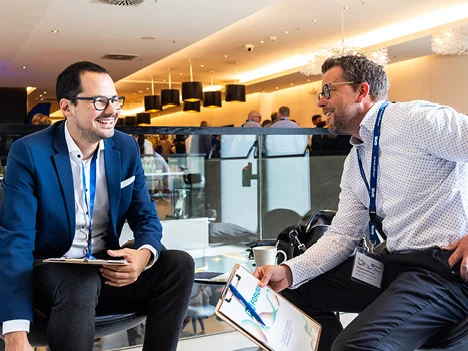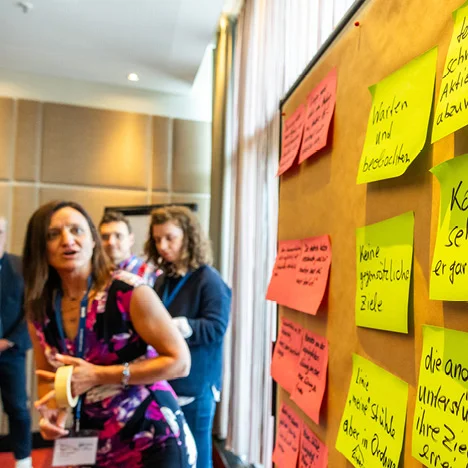09/18/2025
Trust and Competence in virtual Project Teams
Room BERLIN
2:30 – 3:15 pm

Discover how professional experience and roles influence dynamics in virtual teams.
Description:
Where proximity is lacking, orientation becomes essential. In virtual project teams, the key question is: who builds trust and who is trusted to take responsibility? A new study from the National University of Singapore reveals how perceptions of collaboration, competence, and commitment vary significantly depending on age, role, and experience.
For example, architects tend to value planning and autonomy more than project managers; both younger and older professionals assign greater importance to interpersonal factors like reliability and goodwill. These differences have a direct impact on leadership, communication, and digital collaboration.
Key Takeaways:
Understand the varying expectations that team members bring to virtual collaboration and how to address them effectively. The findings offer practical insights for role- and experience-based training programs that strengthen trust and make virtual teamwork more resilient.
All Participants will Receive the Academic Paper:
Demographic and Experiential Influences on Trust and Technological Competency Perceptions in Virtual Project Teams.

Feiyang Wie (Singapore)
Presentations on similar topics

Insights from Agile Teams

emerges in Project Teams

Success strategies
from elite sports

The Conundrum